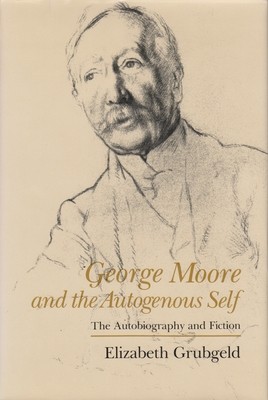
- We will send in 10–14 business days.
- Author: Elizabeth Grubgeld
- Publisher: Syracuse University Publications in Continuing Education
- ISBN-10: 0815627386
- ISBN-13: 9780815627388
- Format: 15.2 x 22.9 x 2 cm, minkšti viršeliai
- Language: English
- SAVE -10% with code: EXTRA
Reviews
Description
In the midst of an explosion of interest in the field of autobiography, there have developed critical languages and approaches that allow us to read both George Moore's fiction and his fictive autobiographies in new and exciting ways.
Elizabeth Grubgeld presents a fresh look at the diverse experiments in fiction and the highly ironic and multi-generic performances Moore put forth as his life story. She focuses on the tension between Moore's fascination with deterministic theories of human behavior and his need to assert a principle of self-creation, his "autogenous self."
Moore's work exhibits a profound recognition of the forces of heredity, gender, culture, and history while simultaneously declaring his belief in an autogenous self. In early novels like A Drama in Muslin and Esther Waters, there is a notable conflict between his postulation of the pure, instinctive individual and the emphasis upon the shaping power of heredity and economics inherent in the traditions of social realism that he adopts.
In The Untilled Field, The Lake, and later works, Moore perfects a narrative technique that in highlighting the power of subjective memory, allows his characters to work out a new relation with the forces of history.
Grubgeld's discussion of satire, caricature, and parody as autobiographical forms will contribute greatly to an understanding of how Moore viewed the relations between the self and the surrounding world. This study, which also incorporates a theoretical discussion of letters as autobiography, will be of interest to specialists in Irish studies, late Victorian and modern British literature, gender studies, and autobiography.
EXTRA 10 % discount with code: EXTRA
The promotion ends in 23d.09:52:11
The discount code is valid when purchasing from 10 €. Discounts do not stack.
- Author: Elizabeth Grubgeld
- Publisher: Syracuse University Publications in Continuing Education
- ISBN-10: 0815627386
- ISBN-13: 9780815627388
- Format: 15.2 x 22.9 x 2 cm, minkšti viršeliai
- Language: English English
In the midst of an explosion of interest in the field of autobiography, there have developed critical languages and approaches that allow us to read both George Moore's fiction and his fictive autobiographies in new and exciting ways.
Elizabeth Grubgeld presents a fresh look at the diverse experiments in fiction and the highly ironic and multi-generic performances Moore put forth as his life story. She focuses on the tension between Moore's fascination with deterministic theories of human behavior and his need to assert a principle of self-creation, his "autogenous self."
Moore's work exhibits a profound recognition of the forces of heredity, gender, culture, and history while simultaneously declaring his belief in an autogenous self. In early novels like A Drama in Muslin and Esther Waters, there is a notable conflict between his postulation of the pure, instinctive individual and the emphasis upon the shaping power of heredity and economics inherent in the traditions of social realism that he adopts.
In The Untilled Field, The Lake, and later works, Moore perfects a narrative technique that in highlighting the power of subjective memory, allows his characters to work out a new relation with the forces of history.
Grubgeld's discussion of satire, caricature, and parody as autobiographical forms will contribute greatly to an understanding of how Moore viewed the relations between the self and the surrounding world. This study, which also incorporates a theoretical discussion of letters as autobiography, will be of interest to specialists in Irish studies, late Victorian and modern British literature, gender studies, and autobiography.


Reviews